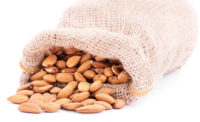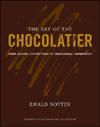The global food market for emulsifiers is set to hit $4.48 billion by 2026, according to research by Stratistics MRC.
The research firm noted the market would grow by a compound annual growth rate of 6.4 percent over the next six years. It also estimated the global emulsifiers market reached $2.55 billion in 2017.
Some of the factors contributing to market growth include increased consumption of convenience foods and premium products, the expanding beverage industry and high demand for specialty food ingredients in various applications. However, growing health concerns and a complex U.S. regulatory environment may hinder the market growth.
Emulsifiers or colloids are extensively used as additives during processing of food products, ranging from from bakery to meat processing. They stabilize food by increasing its kinetic stability. Food emulsifiers are either synthetic or natural food additives, which assist the stabilization and formation of emulsions by reducing surface tension at the oil-water interface.
The bakery sector will account for considerable market share during the forecast period due to growing demand for innovative gluten-free baked products. In bread making, they are used for dough conditioning and shelf life extension.
By geography, North America dominated the market because of the presence of many international chocolate brands and growing consumer demand for and dairy and frozen desserts and convenience foods.
Some of the key players in food emulsifiers space include Dupont, Cargill Inc., Corbion, Ingredion Incorporated, Kerry Group Plc, Archer Daniels Midland Company, Lonza Group Ltd., Danisco A/S, Riken Vitamin Co., Ltd., BASF SE, Palsgaard A/S, Solvay S.A., Adani Wilmar Ltd., Stepan Company and Lubrizol Corporation.









